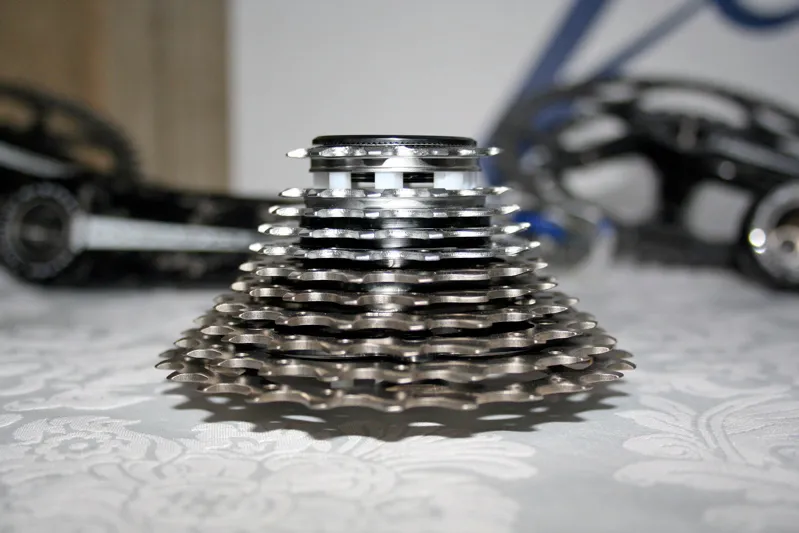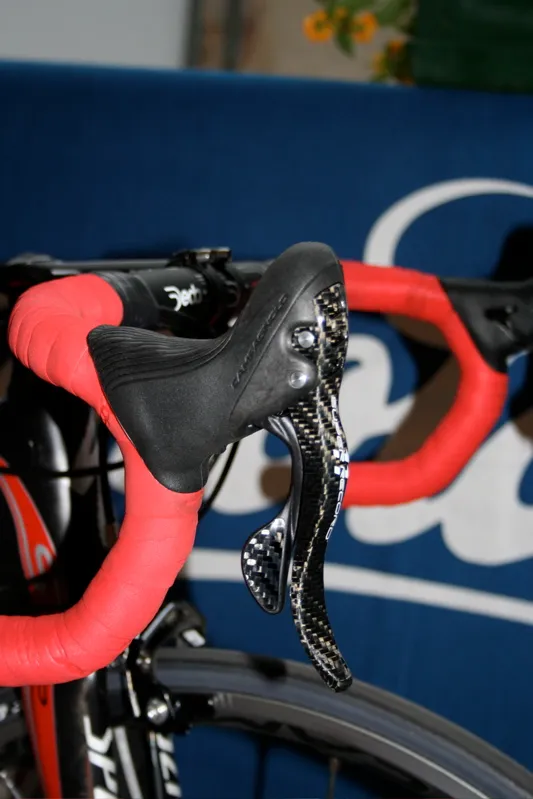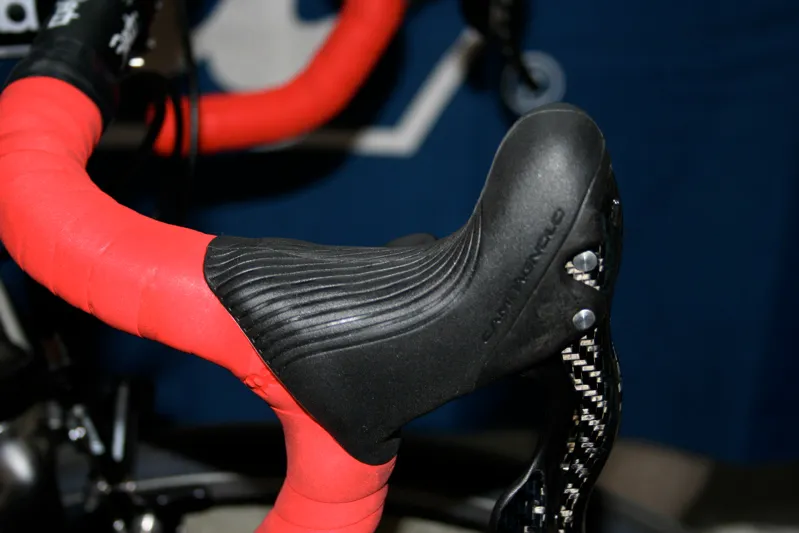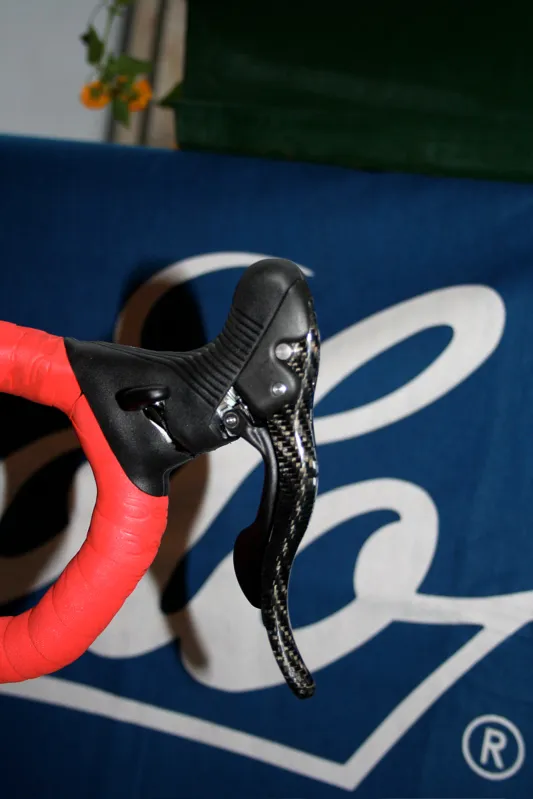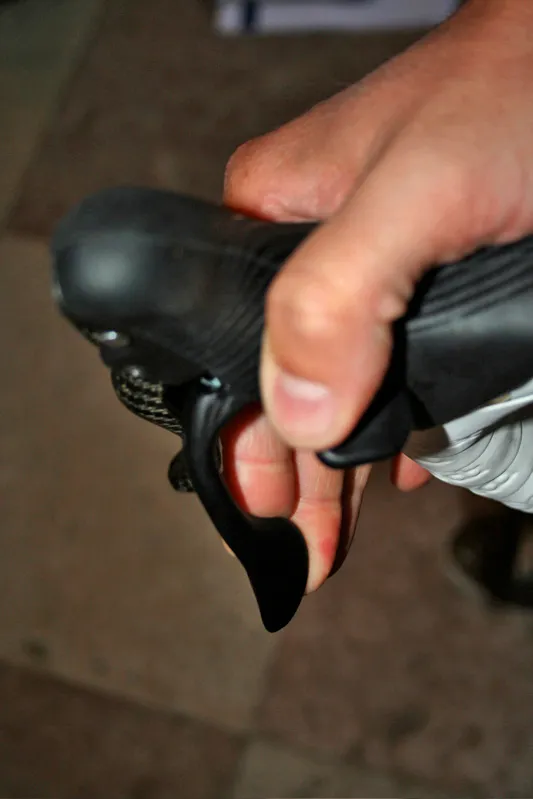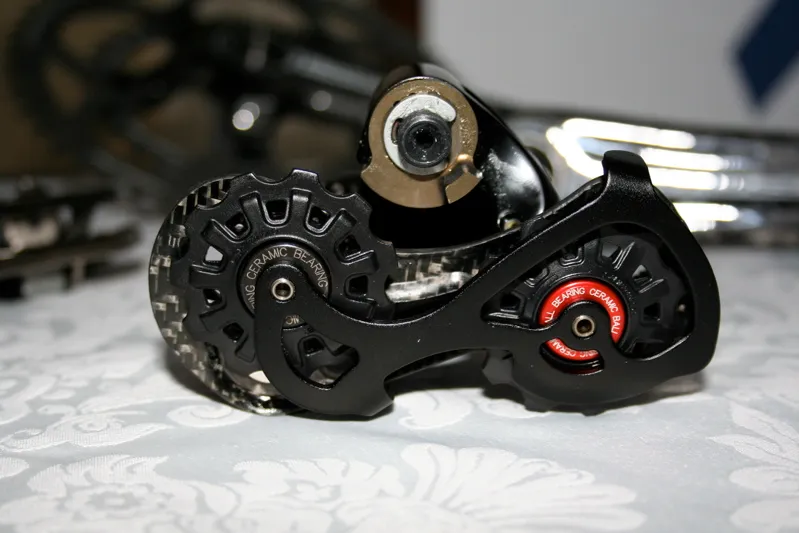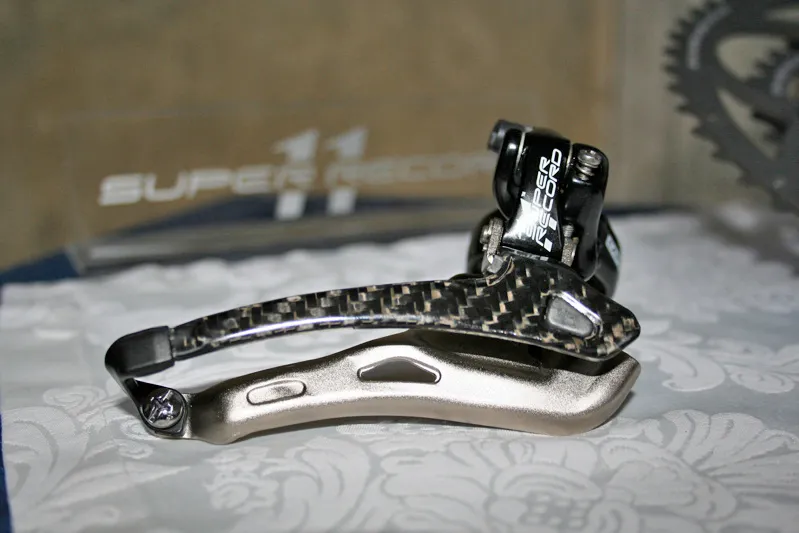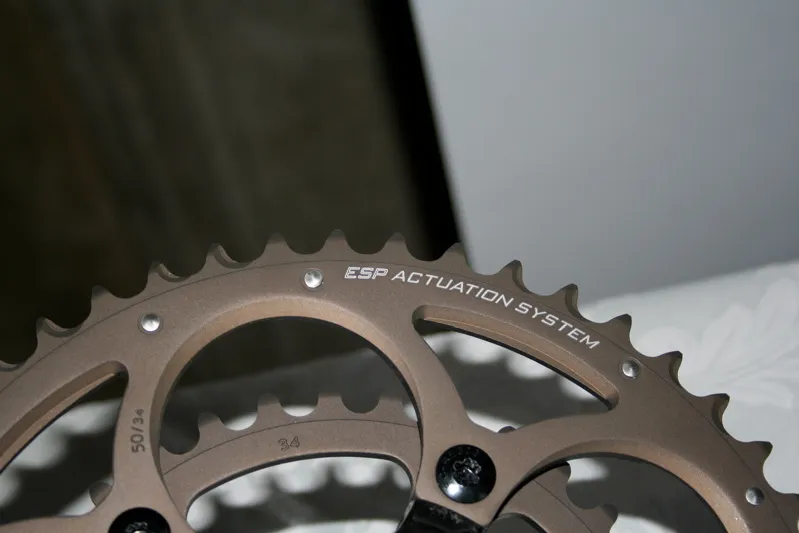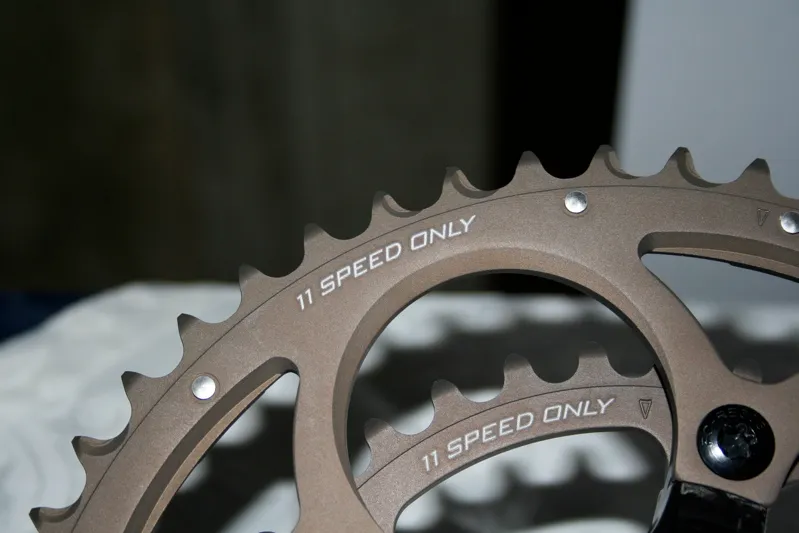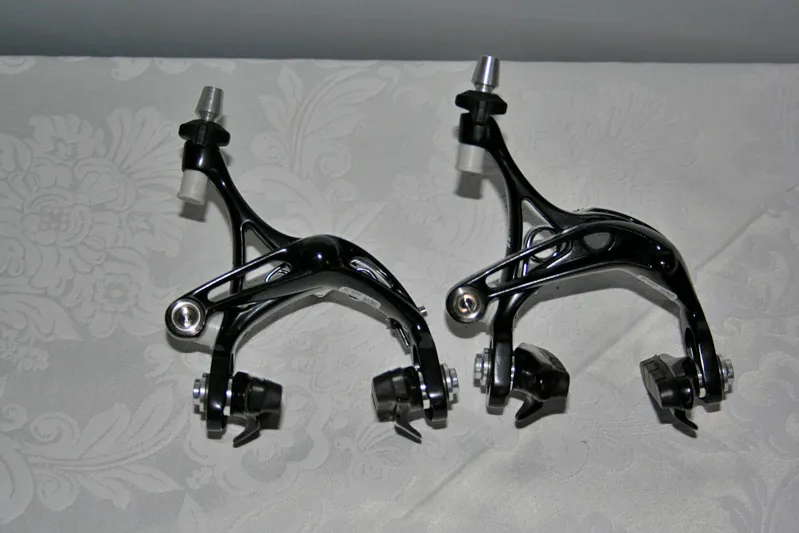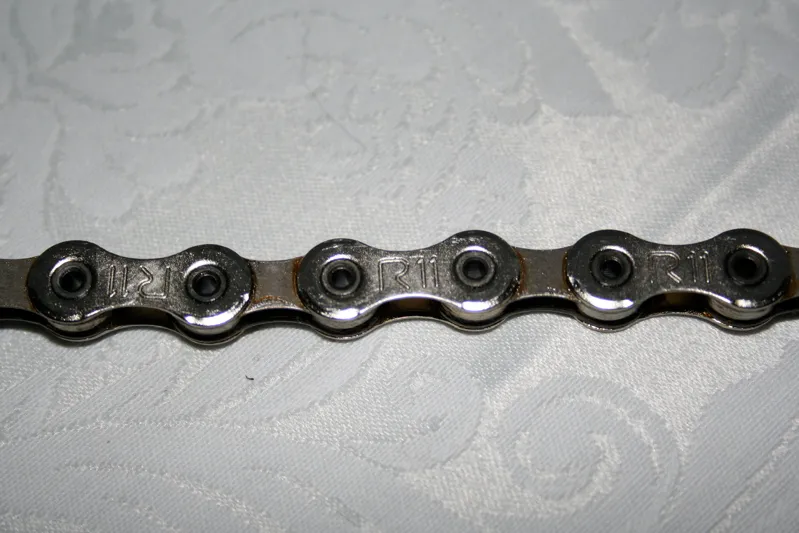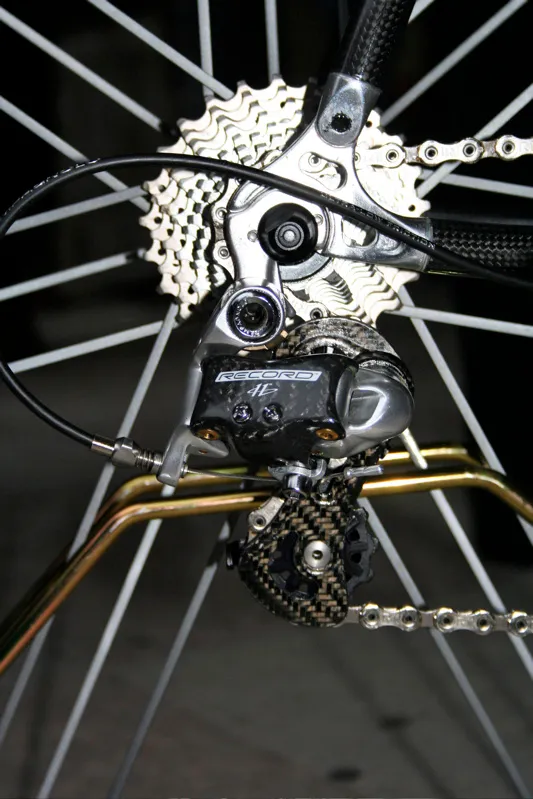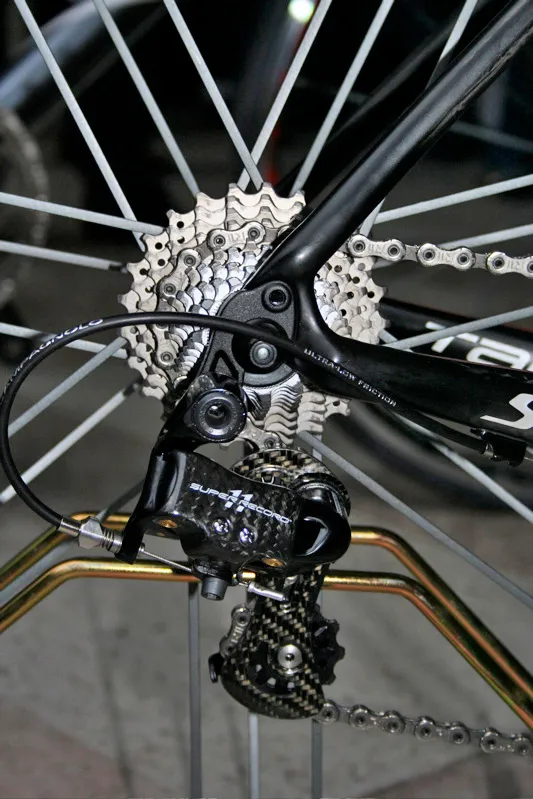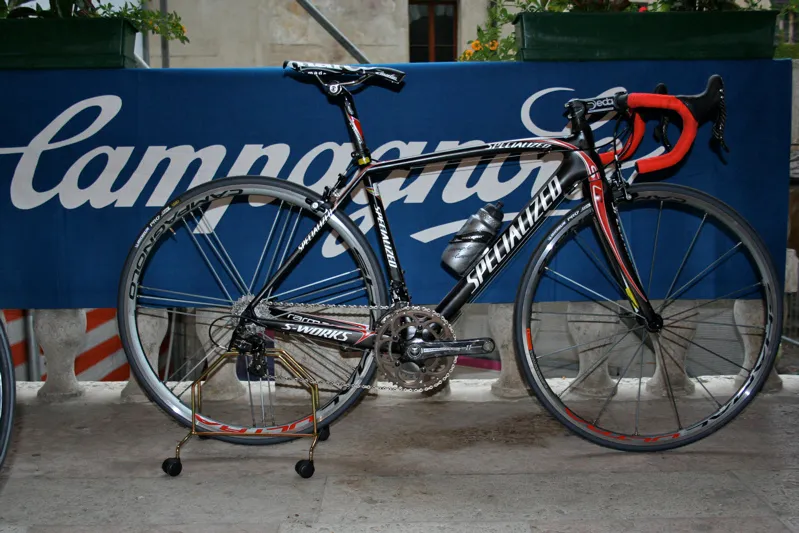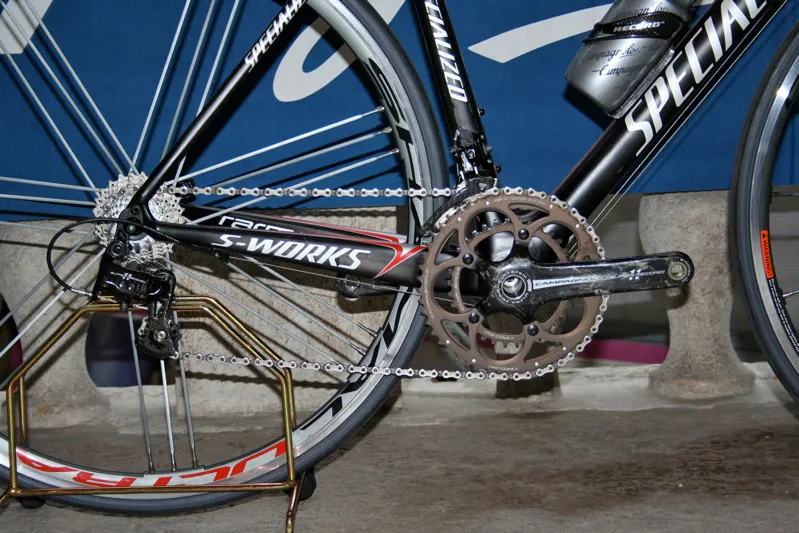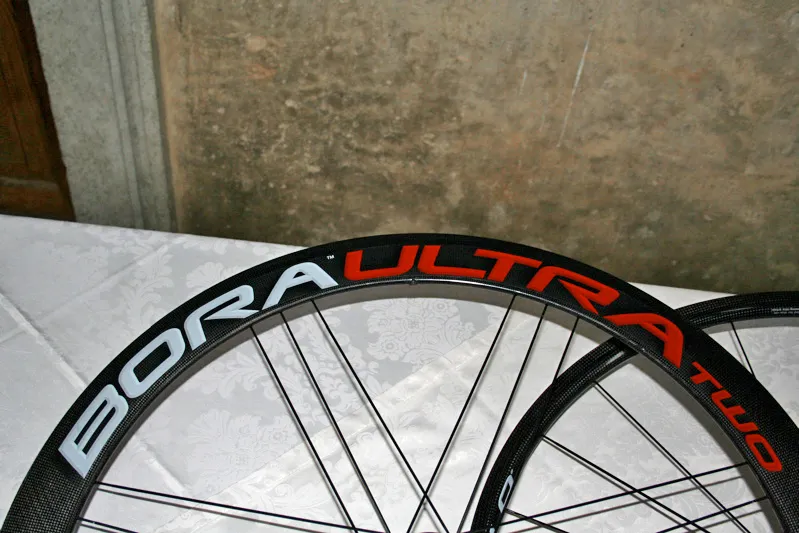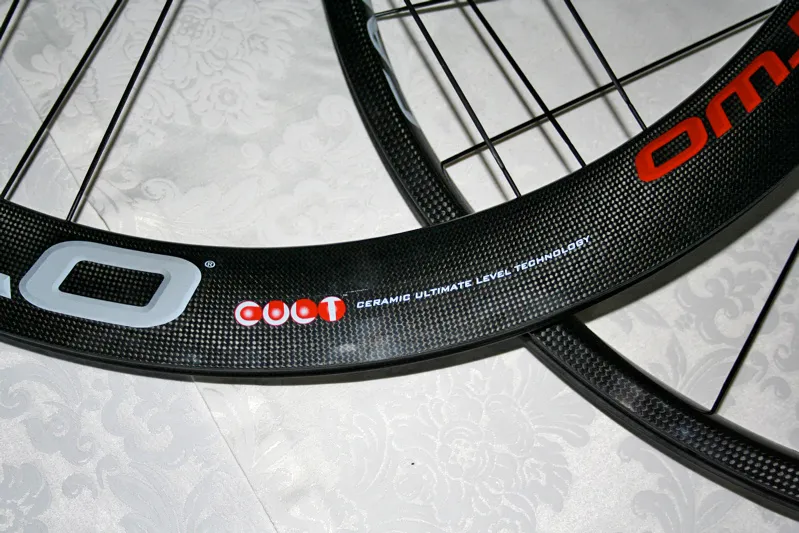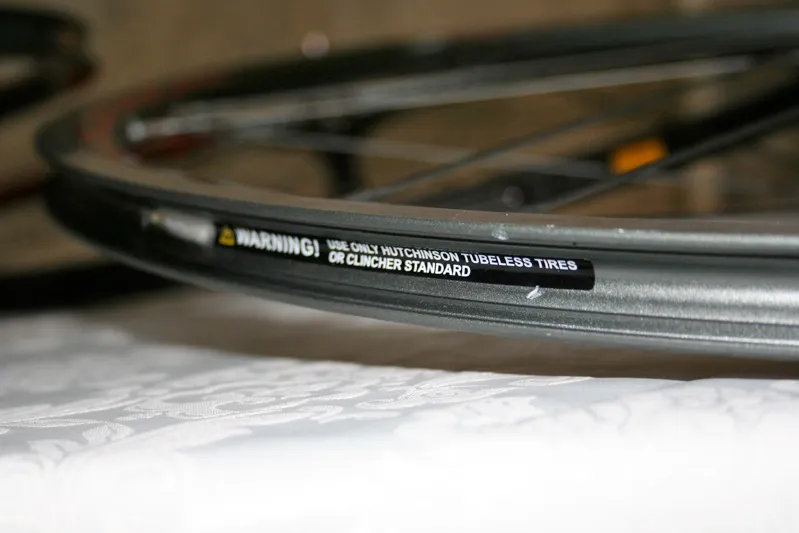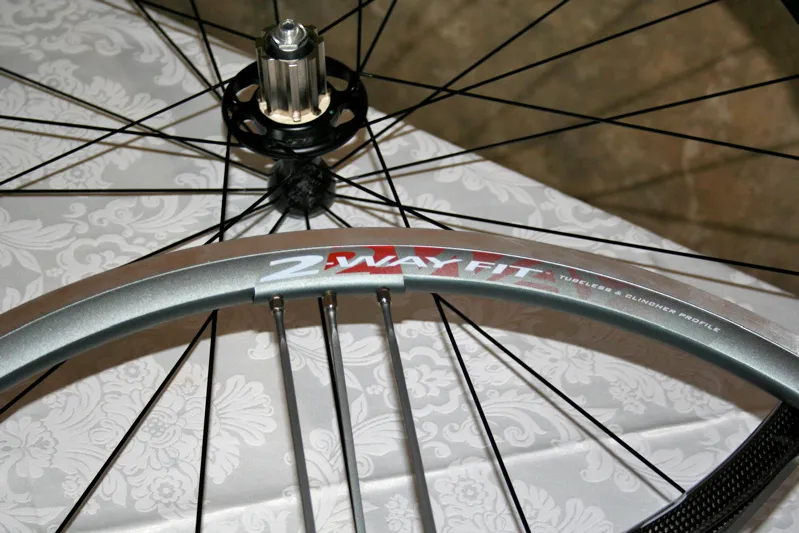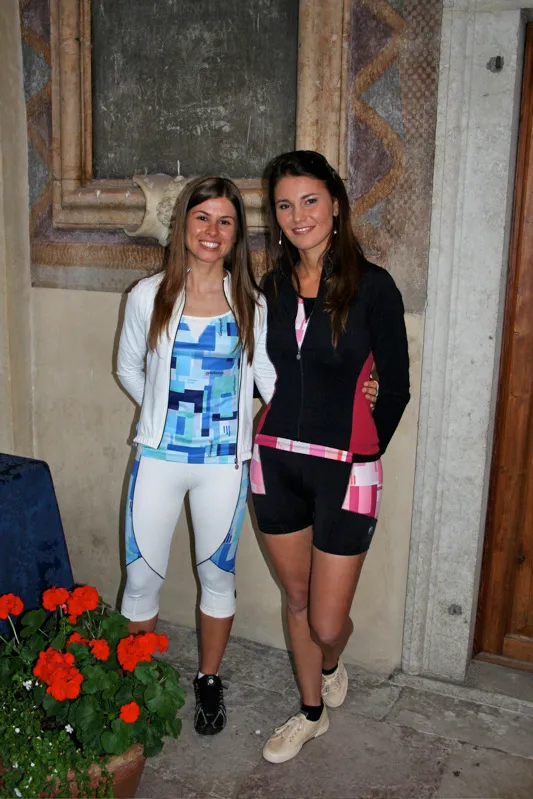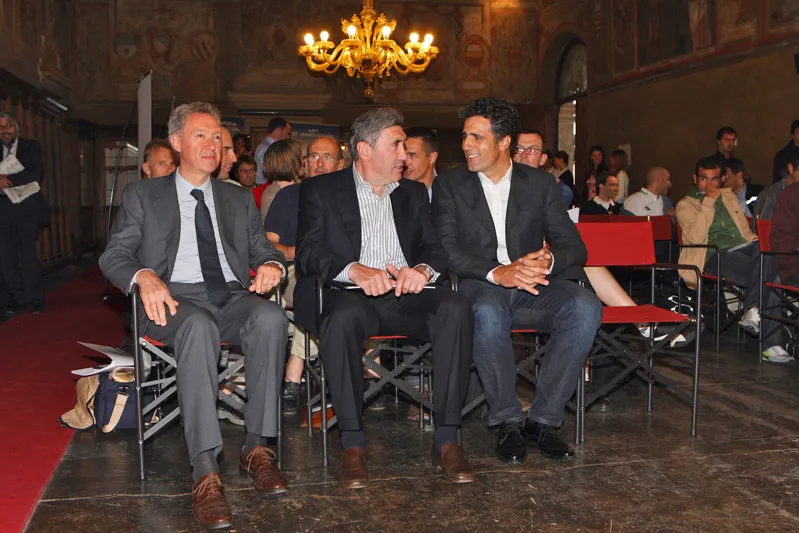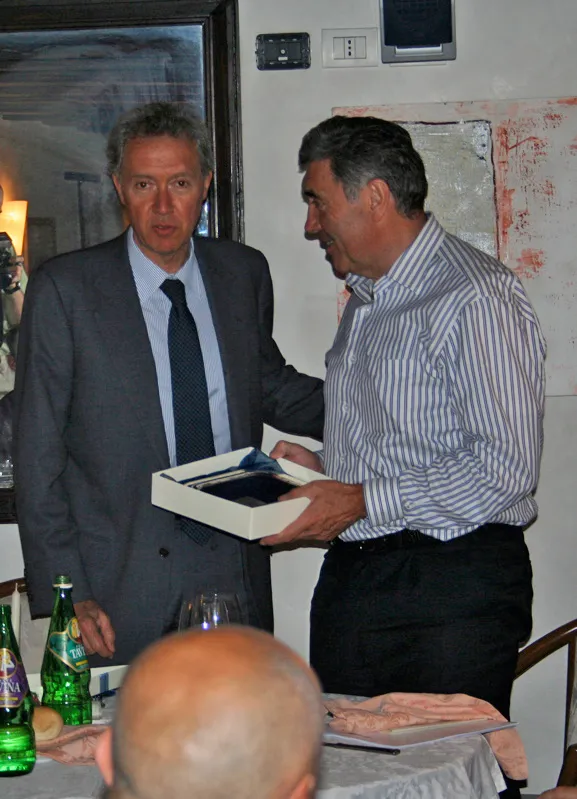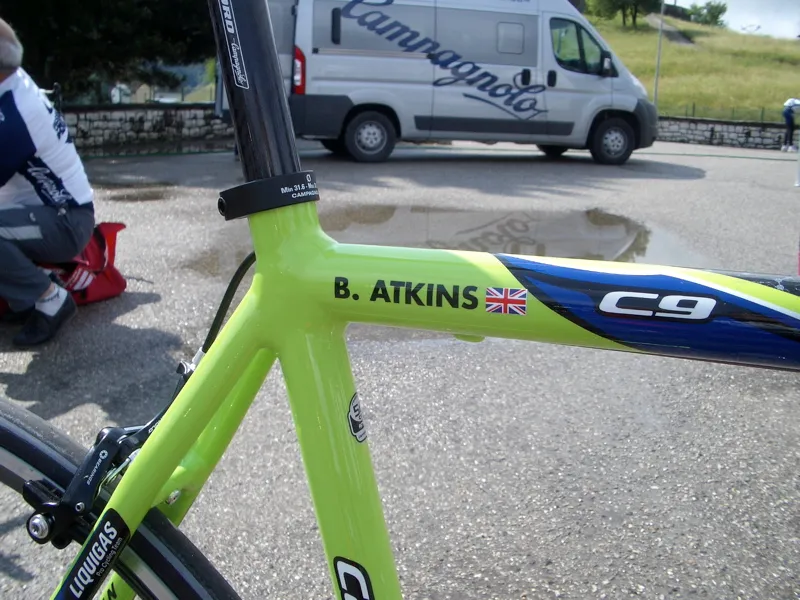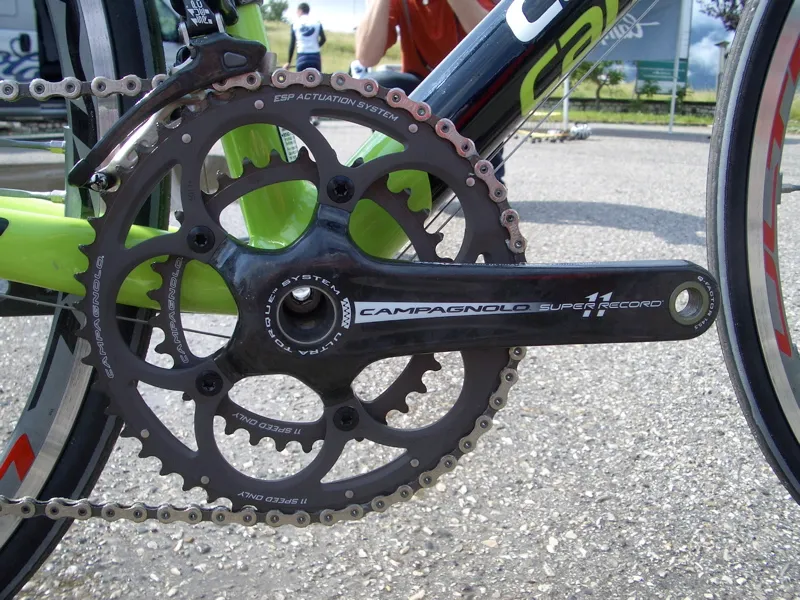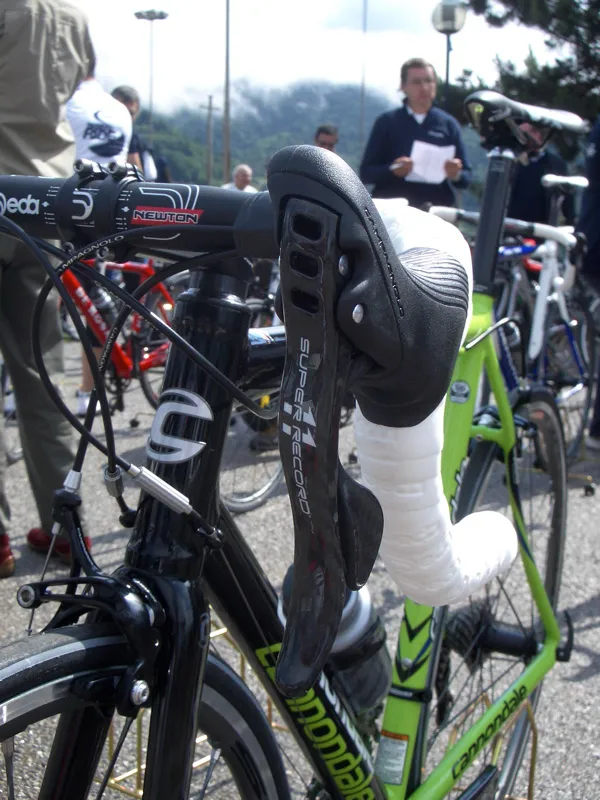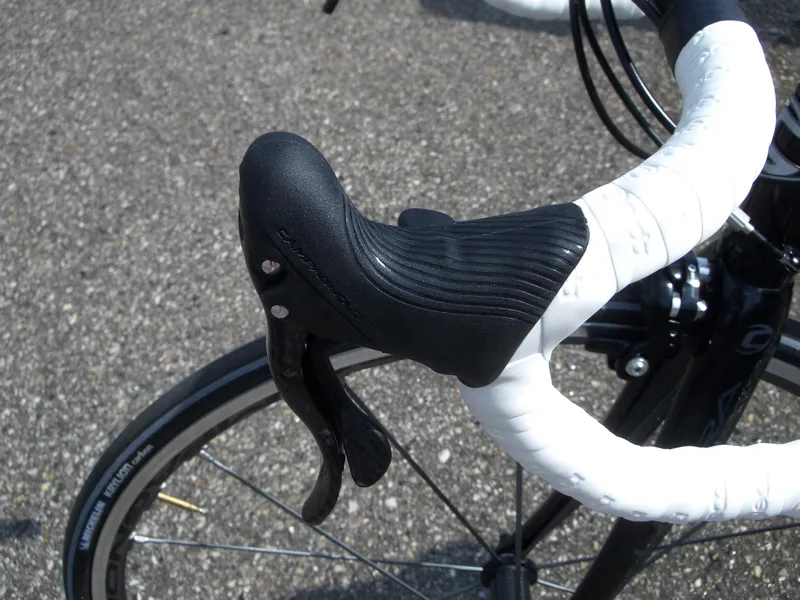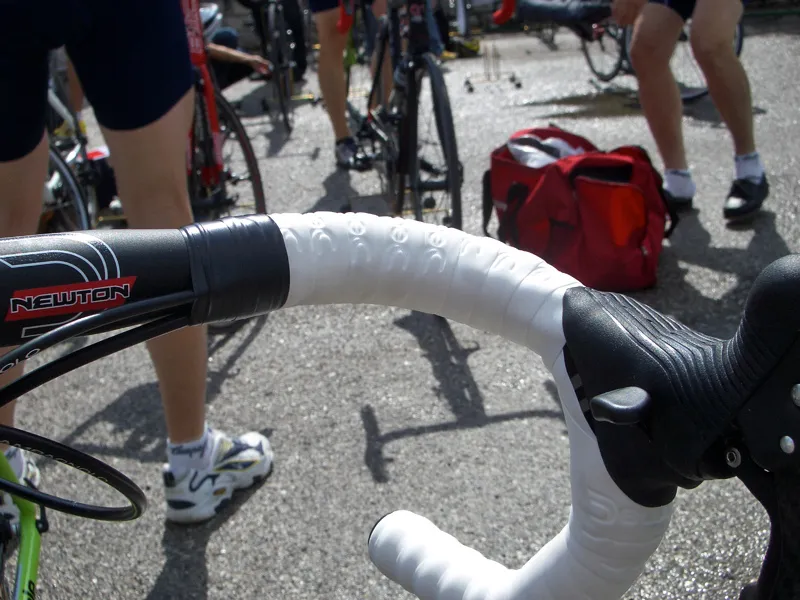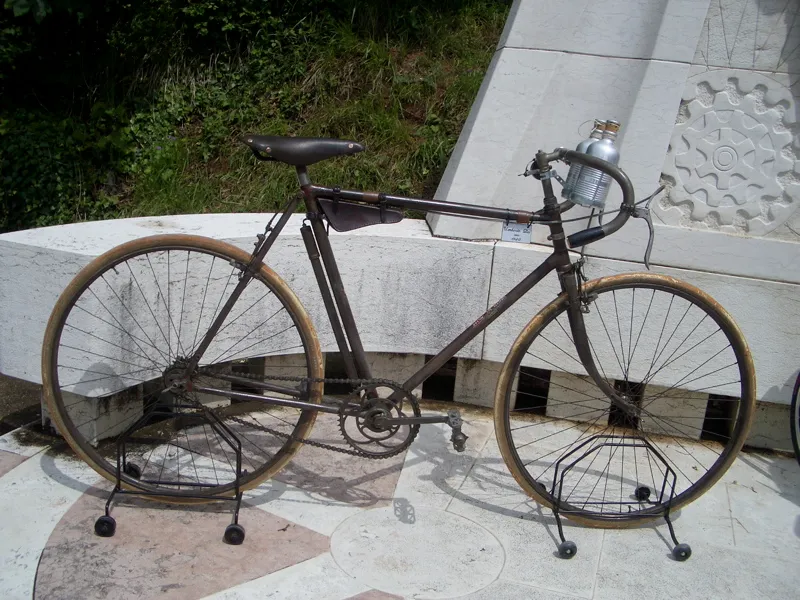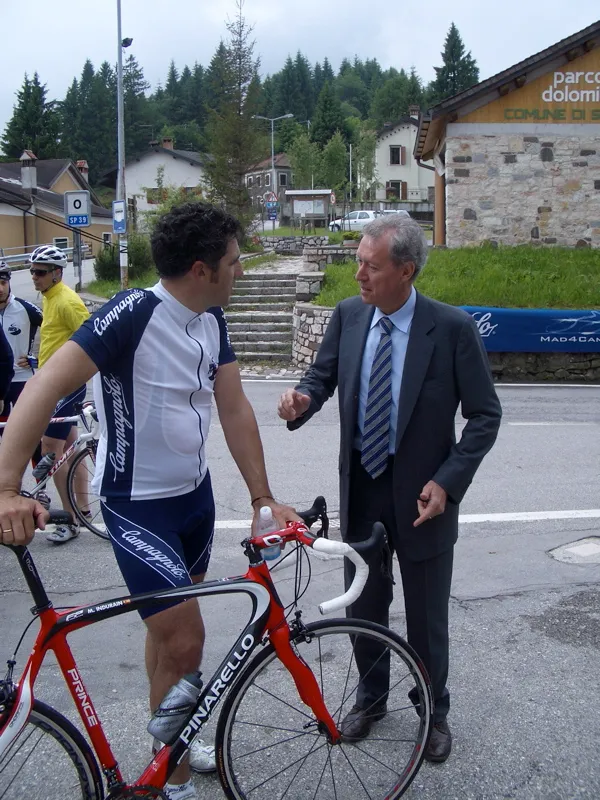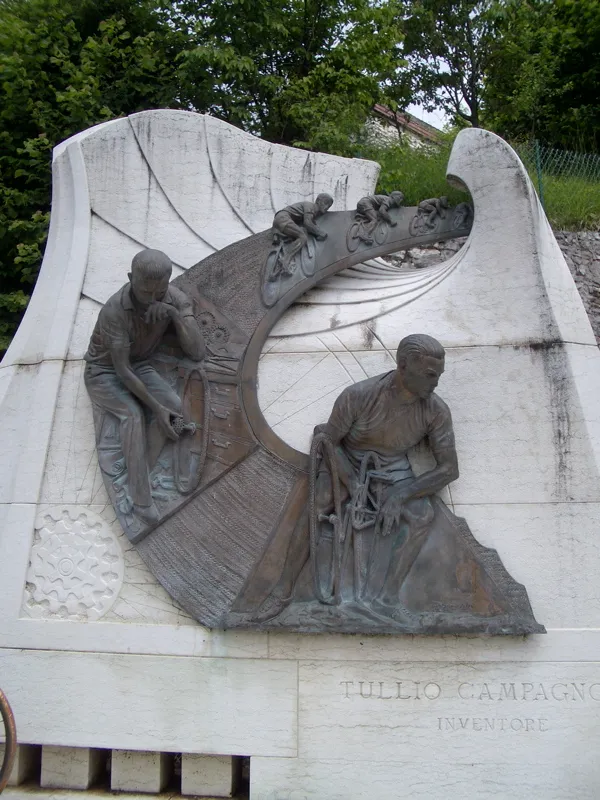Confirming that all the rumours were true, Campagnolo has launched its wholly revamped 2009 range to the world. Top groupsets get an extra sprocket, the Super Record name is back and there are several changes and upgrades to Campagnolo’s top wheels.
This one goes to eleven
The 2009 Chorus, Record and Super Record will all be fitted with 11-speed rear ends. The obvious question is, Why?
Campagnolo’s blunt answer is, “Why not?” The extra cog is apparently the Vicenza company’s response to the constant demand from pros and amateurs alike for a wider gear range with smaller gaps between them. Essentially, the new ratios are the same as those in the existing 10-speed groupsets save for the addition of the larger sprocket. The 11-speed cassette will be available in 11-23T, 11-25T, 12-25T and 12-27T combinations, the last of which should be especially welcomed by Gran Fondo riders.
As with the transition from 9-speed to 10-speed, the 11-speed format will carry with it narrower chain widths and tighter chainring and cog spacing. The new chain is now just 5.5mm wide – 0.4mm narrower than 10-speed – but Campagnolo claims that it is 20 percent stronger than before through the use of special steel alloys. The links have been redesigned to interact with the sprockets more effectively for both smoother running and more precise shifting.
Ergopower Ultrashift Levers redesigned from scratch
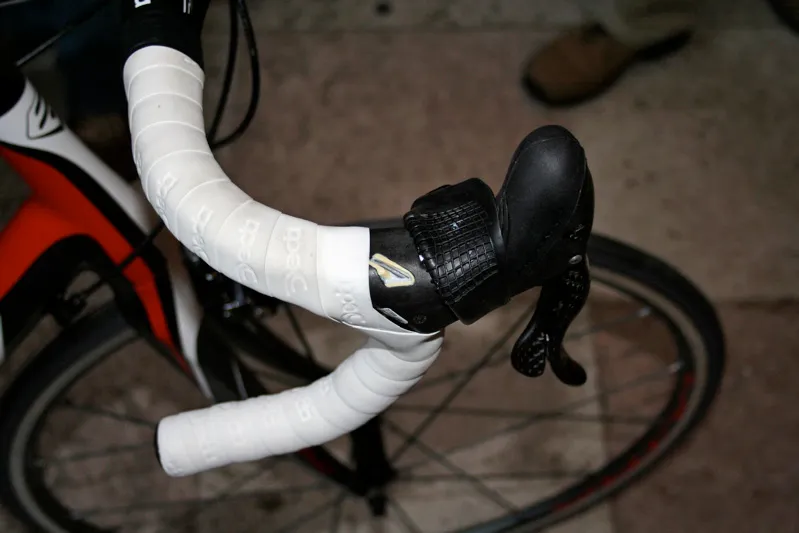
Campagnolo engineers have graced the new bake/shift levers with dramatically new ergonomics and shapes but they still retain the essential characteristics of the existing levers. The basic shift lever and paddle combination naturally carries over. It is still possible to shift multiple gears at a time in both directions and the front shifter still features micro-ratchet detents to trim the front derailleur.
The most noticeable difference is that the hoods have been increased in size, in all directions. The top of the lever hood has been extended upwards and inwards to allow for a hand position above the brakes when in a low time trial-style position – as Shimano hoods have allowed for some time.
The lever bodies are also larger in area for a more comfortable hand position and they have a multi-density “Vari-Cushion” cover. The most common hand rest area is softer for improved comfort while the rest of the hood is rather firm for a more secure purchase.
Campagnolo has also refined the shape of the rear of the lever body so that the derailleur cable housings no longer bulge from under the bar tape.
Large-handed riders are catered for with an optional insert that will move the levers out by an additional 8 percent. Unfortunately, there is no mechanism to bring the lever reach in for smaller hands.
The new curvier brake lever blades partially make up for this omission, though, as they are now far longer and feature a double curve designed to allow one or two fingers to hold the lever ahead of the hood and still remain in control. The pivot point has also been raised to allow the brakes to be effectively operated with one finger.
Ergonomic changes have also been made to the gearshift lever behind the brake lever. As SRAM and now Shimano have both done with their most recent introductions, the lever now arcs slightly inward through its travel to better follow the natural movement of the fingers.
Shifting force has been reduced by 18 percent and 13 percent for the front and rear derailleurs, respectively. The cable pull has also been increased in the left hand lever, reducing the lever throw required for front shifts.
Campagnolo embraces ceramic bearings
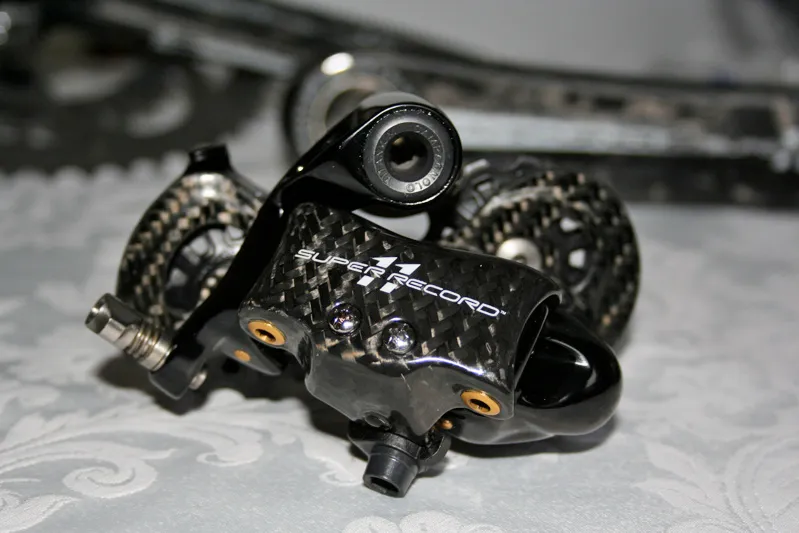
First introduced in 1973, and regarded at the time as the ultimate groupset, Super Record is still fondly remembered by those who rode it. For this reason, and to celebrate the company’s 75th anniversary this year, the name has been revived as the top level in Campagnolo’s range.
The titanium hardware that has long been a staple on the standard Record group will now be reserved exclusively for Super Record. In addition, the Super Record cassette will be fitted with six titanium cogs, as opposed to just three for Record.
In a first for Campagnolo, ceramic bearings will be fitted as standard equipment throughout Super Record. The usual silicon nitride balls will be paired with extra-hard and corrosion resistant Cronitect martensitic steel races, a combination dubbed Ceramic Ultimate Level Technology (CULT). According to Campagnolo, the new CULT bearings require only light oil for lubrication, not grease.
Record will also be fitted with hybrid ceramic bearings although without the Cronitect races.
Wholesale groupset changes
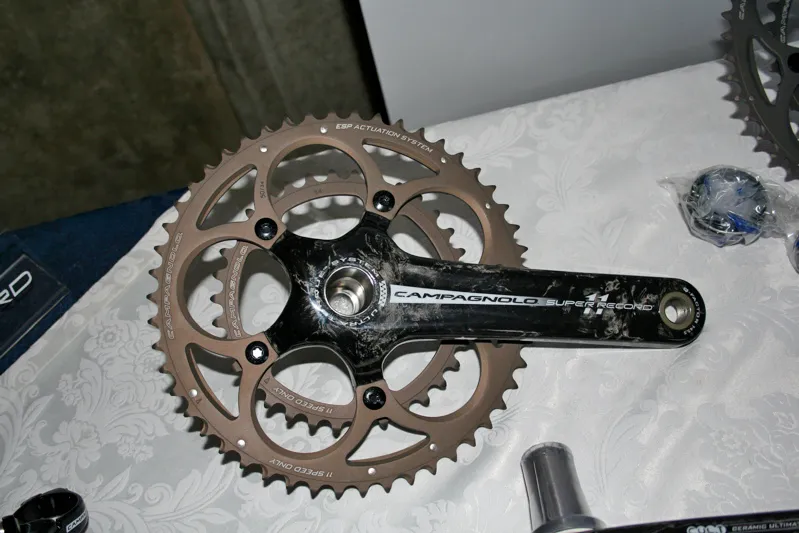
The carbon chainset looks very similar in appearance to the existing 10-speed version, as Campagnolo continues to use the Ultra-Torque external bearing bottom bracket system. The chainrings now have specific gates for both up- and downshifting,, and receive a new surface treatment for improved durability.
Rear derailleurs have been subject to major overhauls. Campagnolo says a new front link and parallelogram make it more torsionally rigid while new relieved 11T pulleys run smoother and quieter while also shaving a few grams.
The front derailleur now benefits from a more rigid cage, which is slightly funnel-shaped for smoother shifting. The cage has also been made wider in order to allow greater chain crossing, as many riders – especially those in the pro ranks – will often use all available combinations of gears, even though they probably shouldn’t.
The claimed weights of each groupset are slightly lighter than before with Chorus at 2145g, Record at 2015g, and Super Record at 1964g. Record is predicted to retail at 2 percent less than the current 10-speed while Super Record is projected to be 17 percent more expensive. Campagnolo is so confident of its new groupsets that it will offer a four-year warranty – one year more than previously.
Wheel upgrades
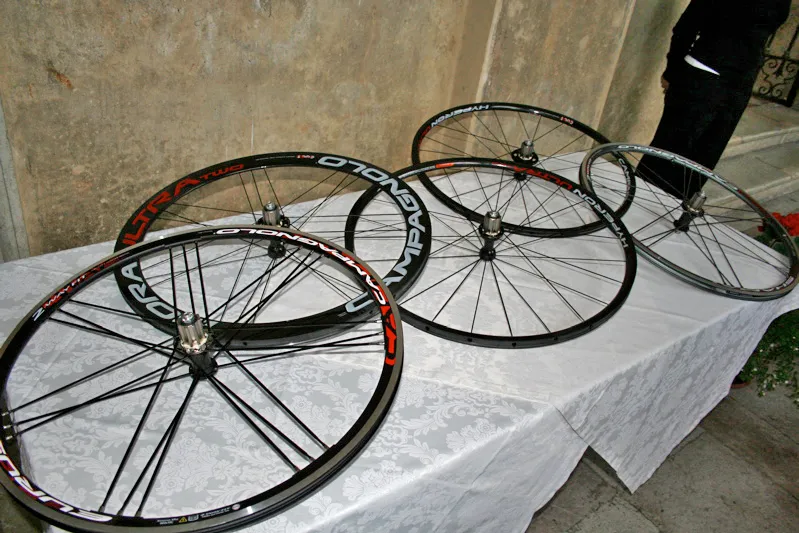
Both of Campagnolo’s top-level carbon rimmed wheelsets are now fitted with new CULT ceramic bearings and renamed Bora Ultra 2 and Hyperon Ultra 2. Campagnolo’s disc wheel also gets a bearing upgrade to become the Ghibli Ultra. It has also developed new in-house carbon specific brake pads which Campagnolo claims mirror the performance of aluminium rims in in-house tests. The wheels themselves are otherwise identical to existing ones, but will be 10g lighter by virtue of the bearings.
Road Tubeless tyre compatibility will be added to the new Eurus and Shamal Ultra wheels for 2009. According to Campagnolo, its performance tests showed roughly a 30 percent decrease in rolling resistance at 40km/h. Traditionalist can still run standard clincher tyres if desired, though. Despite the changes to the rims, the new wheels will weigh the same as previously and retail at the same price.
Two ‘intense’ groups – bye-bye to entry level
For 2009, Campagnolo is dividing its range into two distinct categories: the three 11-speed groupsets are deemed by Campagnolo to be for ‘Competition’, while those lower in the range – Centaur and Veloce – are designated for ‘Intense Use’ by people who may put in thousands of kilometres a year but don’t actually race.
The lower groupsets in the range will remain at 10-speed but will share a number of the new design features of their Competition stablemates. Both will include the new shaped Ergopower levers, but with aluminium instead of carbon levers. Centaur will include an optional carbon chainset with the remainder in polished aluminium, while Veloce will be black anodised.
Campagnolo’s entry-level Mirage and Xenon groupsets will be discontinued.
The trial – by ordeal!
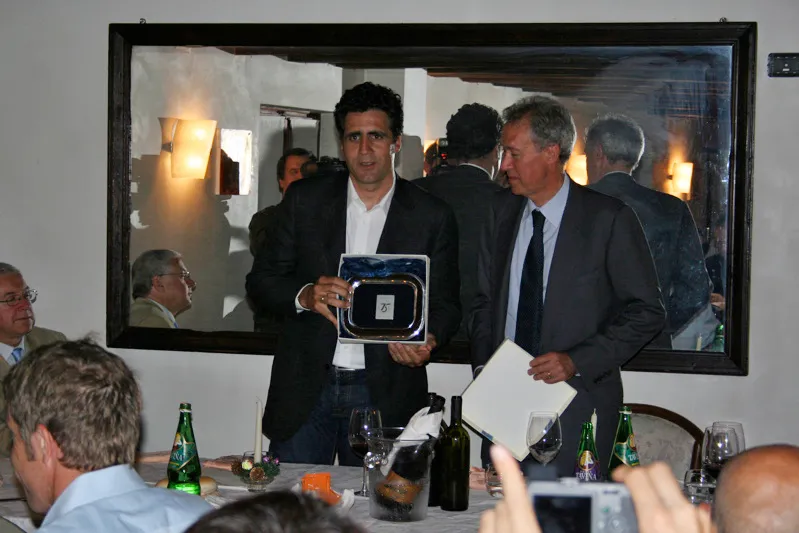
Our short test ride took us up and over the 8km climb to the Passo Croce d’Aune, an appropriate mountain pass to which Campagnolo owes its very existence. True to Campagnolo’s claims, we found the Ergopower levers’ new shape to be extremely comfortable both on the short flat approach to the climb and when wrestling with its steep gradients.
The fact that we managed to get to the top without putting a foot down – after two failed attempts at the end of the Gran Fondo Campagnolo a few years ago – probably owed a lot to the fact that our lowest gear was a wall-scaling 34x25T instead of the 39x26T that we used on those previous attempts. Nevertheless, shift quality was particularly high, even when hammering out of the saddle, and the noiseless ceramic bearings performed exceptionally (although it’s obviously difficult to say if we were any faster on those relatively unfamiliar roads).
Contrary to our expectation, the 11-speed system somehow managed to work even better than the old 10-speed, and the 11-25T cassette gave us a small climbing gear at one end and a proper top-end gear at the other. As designed, the extra sprocket kept the gaps between minimal – mostly just one tooth at a time – and so the right gear was never far away.
As we neared the top and the road began to level out for the final few hundred metres, we found ourselves sprinting for the line and rising up through the gears as we went. The fact that we crossed the line in a combination of 34x11 with no complaints from any part of the bike (save its rider!) showed that the changes made to the front derailleur have had their desired effect.
On the fast, and occasionally quite technical, descent down the other side through Pedavena and back to Feltre, the new longer brake levers came into their own. The new shape fit our braking fingers perfectly as we flew down the straights, and the brakes – on our conventional non-tubeless Shamal Ultra rims – slowed us down in time for the next hairpin. On the flatter run in to Feltre and a well-earned shower, we rode with our hands on the hoods, once again appreciating the new comfort, and on several occasions had cause to use the brakes. The new higher lever pivot contrived to make this much more effective than previously.
Naturally, a more thorough long-term test is in order here but our first impressions are excellent. Much to our delight, Campagnolo has managed to thwart our doubts (at least for now) about its new 11-speed system and lever shape and come up with yet another superb iteration for its storied history.
